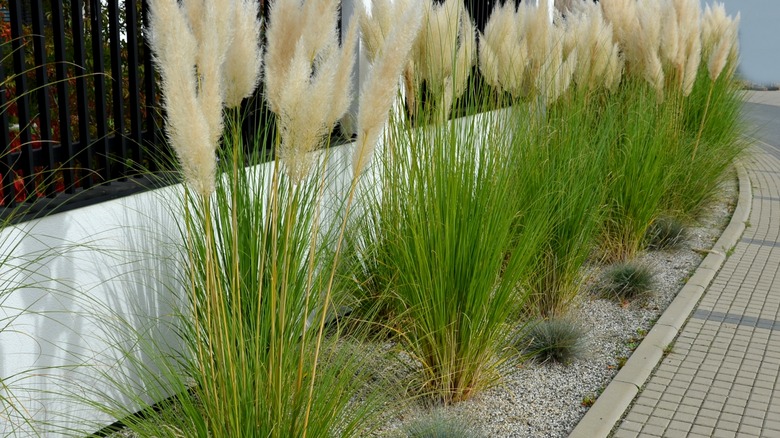Ticks can pose dangers, both to humans and pets. Unfortunately, these insects don’t just live in the woods or overgrown grasses. They also hang out at ground level in moist, cool spots in the shade, climbing onto taller grasses and shrubs to jump onto prey. If you have dogs or children that regularly explore such areas, they may be more susceptible to attracting ticks than you think. However, you can utilize landscaping, such as the popular yellow pampas grass, to make ticks less likely to infiltrate your yard.
Since ticks prefer large amounts of moisture, you can deter them from taking up residence in your space by favoring plants that don’t require a lot of watering. Yes, you can spray your yard for ticks, but before you go to those chemical extremes, try landscaping. Drier plants don’t provide a preferred habitat for ticks, making them a natural way to encourage these pests to move on to greener pastures.
Planting yellow pampas grass to repel ticks

Xeriscaping centers on using landscaping to reduce the need for watering. Planting yellow pampas grass acts as a form of xeriscaping, and the resulting decrease in your yard’s moisture will, in theory, discourage ticks from settling there. Yellow pampas grass and other plants that thrive in more arid conditions create an unappealing environment for the insects. You can amplify your landscaping with rock gardens, wood chips, and barrier pathways to increase your chances of keeping ticks away. These efforts don’t guarantee you won’t see them around, but they’ll be less likely to inhabit your house or lawn if you don’t provide livable areas.
Pampas grass likes full sun and little water in well-drained soil and can grow as high as 10 feet tall anywhere in zones 7-10. However, bear in mind that Hawaii has banned pampas grass, and Texas and California have categorized it as an invasive weed. It’s also flammable, so you may wish to avoid planting it anywhere consistently under the threat of wildfires.